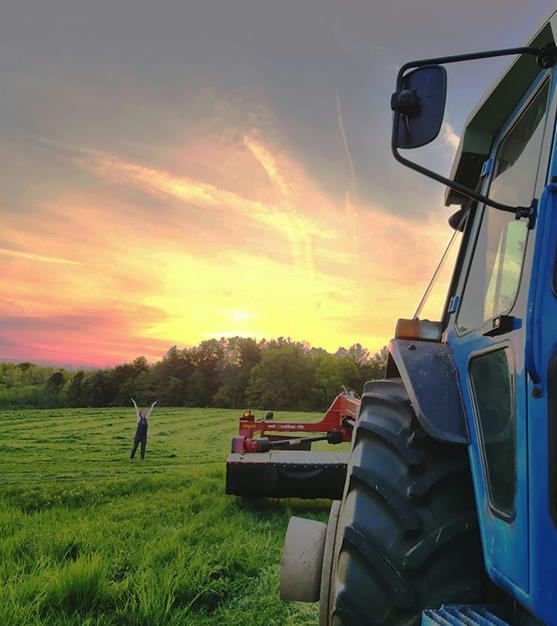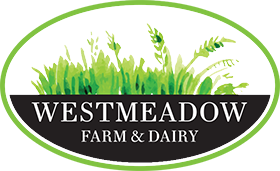Founded by Tom and Patricia Vaughan, Westmeadow Farm & Dairy is a source of wholesome, sustainable food for people in Johnstown and the surrounding area. But we offer more than nutrient-rich dairy products—we also offer hope for local families navigating the challenges of food allergies.
Healing Ourselves and the Earth Through Nourishing Food
About WESTMEADOW
The Path to Westmeadow Farm & Dairy


Our Origin:
Our son’s severe allergies to processed foods, especially corn, motivated us to found Westmeadow Farm and Creamery. His allergies opened our eyes to the damaging effects of modern farming practices on the quality of our foods, our health, and the environment. The realization ignited a deep-seated desire to reconnect with healthier, more sustainable farming practices.
Tom spent his childhood on his grandfather’s farm in Ireland, where he watched harmonious agricultural practices give way to more damaging modern methods that depleted the soil over time.
Recognizing the same pattern contributed to our son’s allergies propelled us to take action. We committed ourselves to producing fresh, wholesome food in a way that respects and nurtures the soil, drawing on the lessons of the past to confront our family’s health challenges directly and to foster a healthier future for our community.

Understanding Food Allergies:
Food allergies occur when the immune system mistakenly identifies a protein in food as harmful, triggering a protective response. Symptoms can range from mild (rashes, itching, digestive problems) to severe (anaphylaxis). Common allergens include nuts, dairy, eggs, soy, wheat, and shellfish, but as our family discovered, the way food is processed can also exacerbate or contribute to allergic reactions.
Know Your Food:
Choose Whole, Unprocessed Foods:
Support Sustainable Practices:

Our Mission:

The Westmeadow Promise:
At Westmeadow Farm & Dairy, we’re more than farmers—we’re guardians of health and nature. We promise to provide you with foods that are not only free from harmful chemicals and allergens but also cultivated in a way that heals the earth.
Join Us on This Journey
As we continue to grow and innovate, we invite you to be part of our community. Whether through visiting our farm, participating in our educational initiatives, or enjoying our products, your support helps us move closer to a world where food is a source of health, joy, and sustainability.


